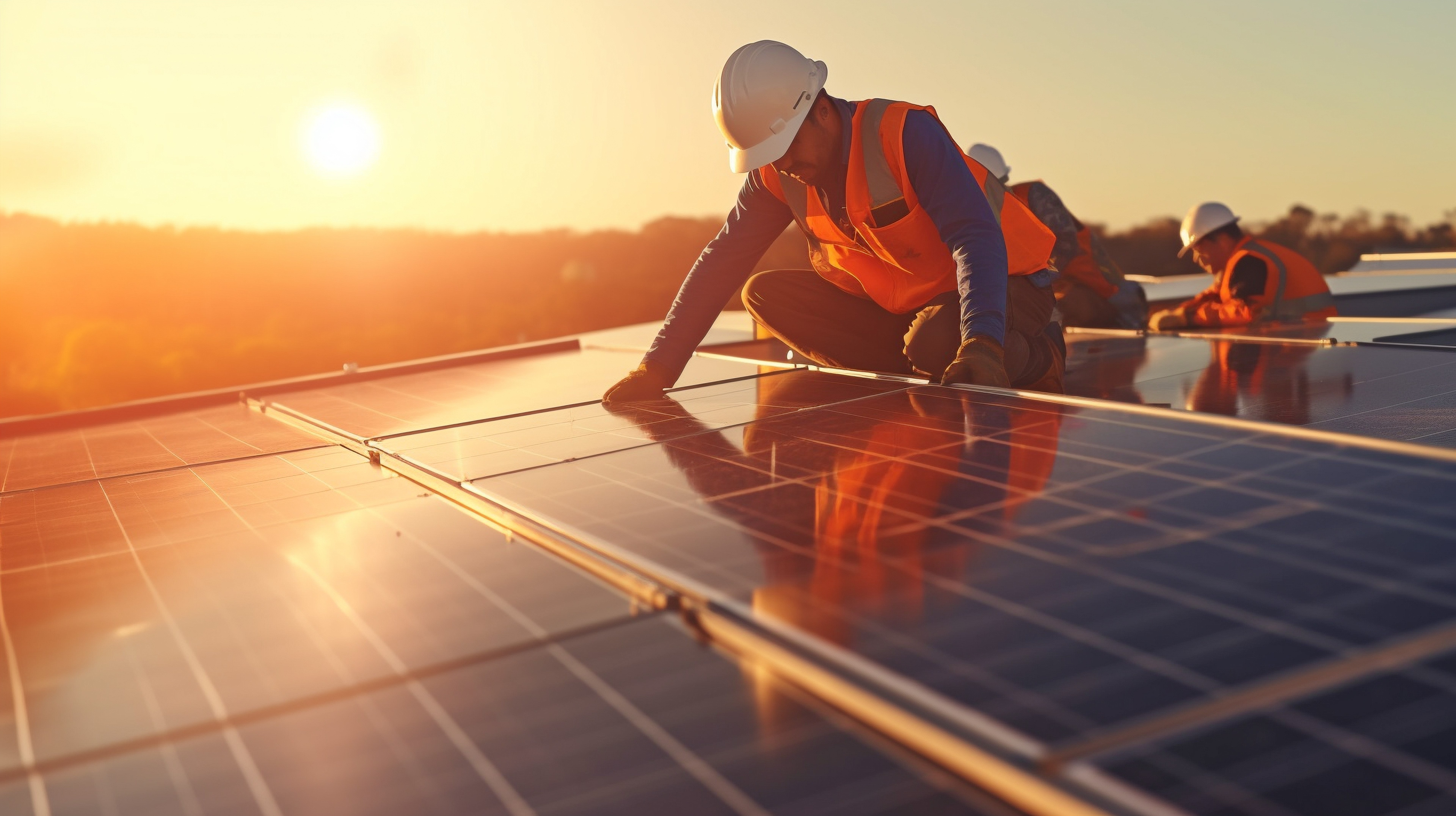Solar power for hospitals and water utilities to strengthen energy security of critical infrastructure, at no cost to community budget
April 3, 2024

The issue of energy security has risen to the top of the agenda in Ukraine due to Russia’s full-scale invasion and shelling of Ukrainian civilian infrastructure – in particular hospitals and water supply facilities.
“The destruction of and damage to urban critical infrastructure and power generation facilities require quick solutions to ensure uninterrupted power supplies in Ukrainian cities,” says Anna Zhovtenko, the manager of the United Nations Development Programme (UNDP) project on energy efficiency in public buildings, which is financed by the Global Environmental Fund or GEF.
“That is why the project supports communities across the entire territory of Ukraine under the control of the (Ukrainian) government.”
One solution in the case of a shortage of budget funds is to attract private investment through the energy service mechanism for renewable energy sources – namely solar power plants or SPPs.
And that’s the goal of the GEF/UNDP project “Removing Barriers to Increase Investment in Energy Efficiency in Public Buildings in Ukraine through the ESCO Modality in Small and Medium Sized Cities,” which is successfully piloting in Ukraine a new model of energy service contracts for solar power plants – ESCO-SPP.
In just the last three months, 12 ESCO-SPPs have been concluded – for four water utilities, six hospitals, and two kindergartens. This will save communities over US$382,500 on energy bills every year.
These are the first successful cases in Ukraine of attracting private investment to water supply and sewerage enterprises that switch to using renewable energy sources. Because of economically unjustified utility tariffs, these enterprises are usually unprofitable, and thus cannot afford to invest in solar power plants.
Attracting private investments through the ESCO mechanism is thus a good solution. This way, the water utility facilities will be able (without any capital investment from the community) not only to save costs on electricity, but also to increase the energy security of the country, while at the same time ensuring uninterrupted water supplies to the population and critical infrastructure objects.
What is ESCO-SPP?
During 2023, the GEF/UNDP project conducted a large-scale analysis of the potential for setting up SPPs at water facilities and hospitals, and developed preliminary feasibility studies for 48 projects in more than 20 partner cities.
This model of energy service involves the design, assembly, construction and installation of solar power plants, using funds from ESCO investors, without the need for capital investment from the city. All the electricity generated from the SPP for the needs of hospitals and water utilities is considered a saving, as electricity generated by conventional power plants will not be consumed. The return on the ESCO companies’ investments will come exclusively from savings on the lower-cost electricity generated by the SPPs.
Together with partner cities and experts, the project prepared typical technical solutions for setting up SPPs. The power of such stations for hospitals will range from 12 to 450 kW, and from 20 kW to 1 MW for water supply stations.
If all the prepared projects are implemented, these SPPs will be able to generate about 13 million kWh of clean energy, so critical infrastructure facilities will save from 10 to 30% on electricity every year.
The combined annual savings of municipal budgets after the completion of the ESCO contracts will be almost $1.5 million, and will increase with the rise in electricity prices. The size of an ESCO's investment in the implementation of such projects will be approximately $7.5 million.
UNDP continues to provide communities with consulting support in selecting technical solutions for the installation of SPPs, accompanying them at all stages of the implementation of the ESCO mechanism, as well as attracting ESCO investments to communities.
For community representatives and private investors who want to learn more about the results of the pre-feasibility studies, the project has prepared a report with the main potential parameters of the first 37 projects.
You can read the report at the following link: https://www.undp.org/ukraine/publications/pre-feasibility-studies-implementation-solar-power-plant-model-through-esco-modality

 Locations
Locations



